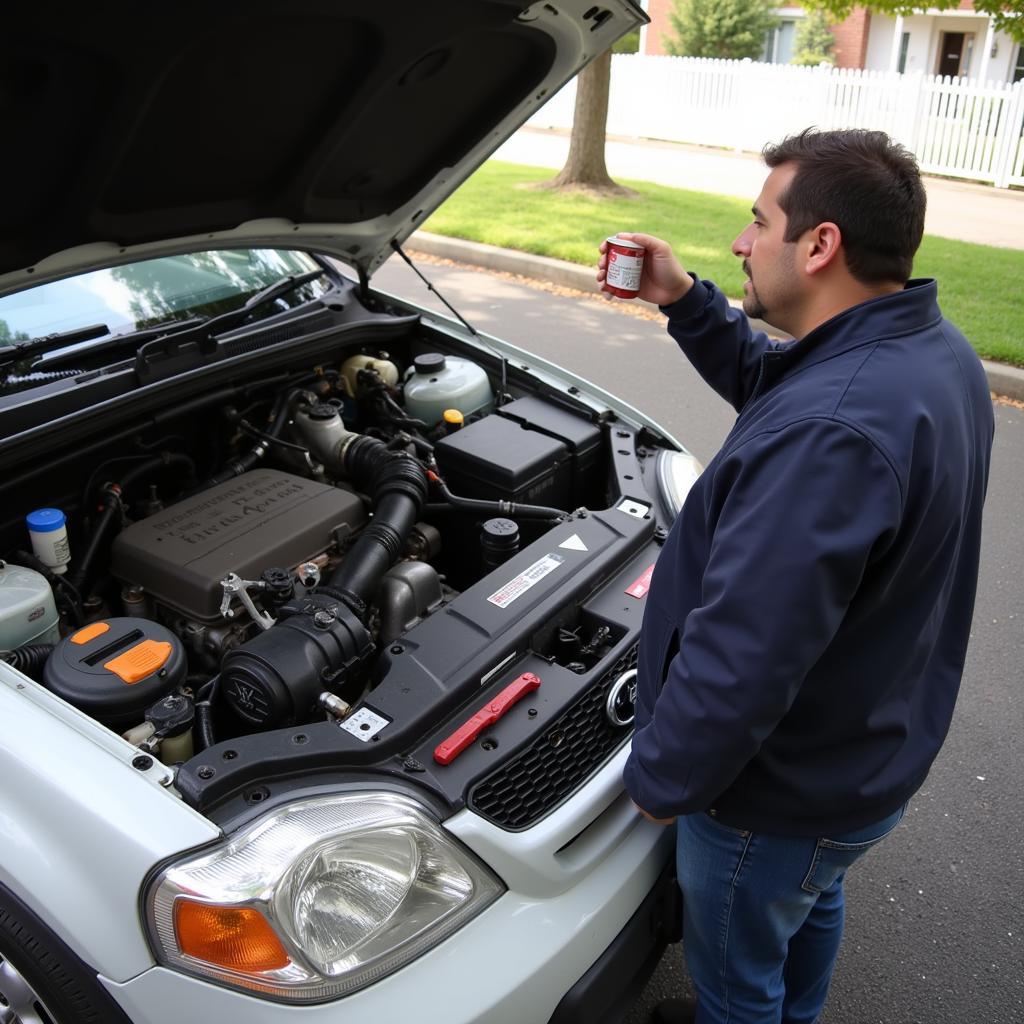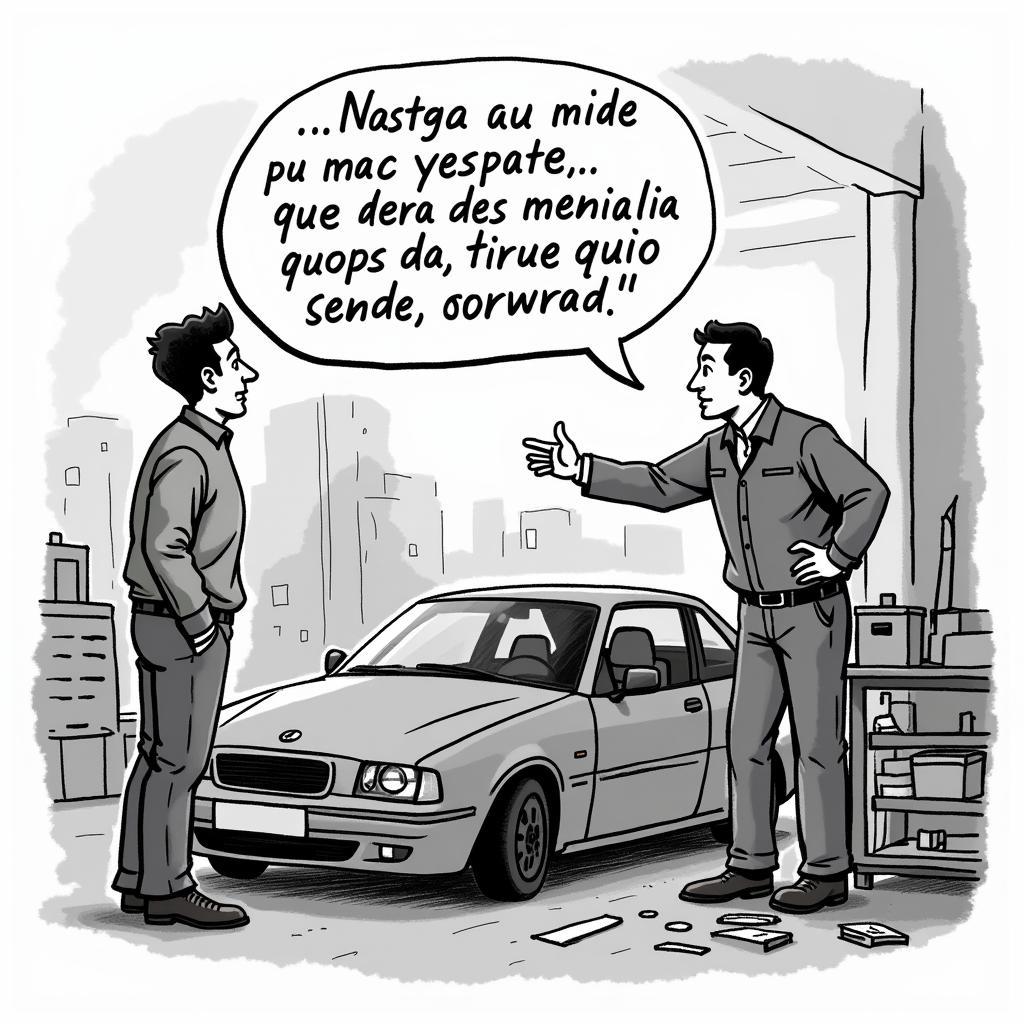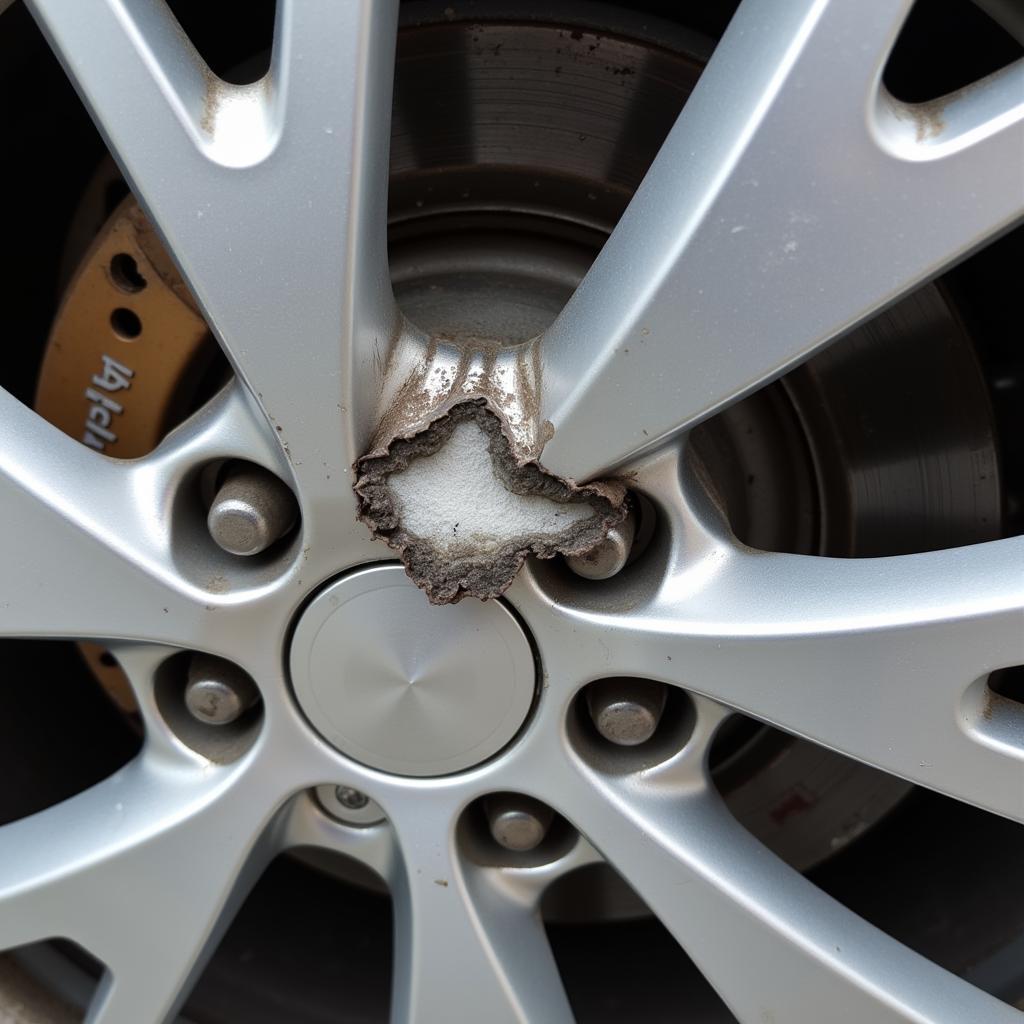“How Do You Spell Im Fixing The Car In Spanish?” is a question often asked by those encountering car trouble abroad or wanting to communicate with Spanish-speaking mechanics. Knowing how to express this phrase can be invaluable, whether you’re seeking assistance, explaining your actions, or simply sharing your DIY spirit. This article will not only provide the correct translation but also delve into related automotive vocabulary and cultural insights to enhance your understanding.
Saying “I’m Fixing the Car” in Spanish
The most common and direct translation of “I’m fixing the car” in Spanish is “Estoy arreglando el carro/coche.” “Estoy” means “I am,” “arreglando” means “fixing,” and “el carro/coche” means “the car.” While both “carro” and “coche” mean “car,” “carro” is more common in Latin America, while “coche” is preferred in Spain.
Other Ways to Express Car Repair in Spanish
Beyond the direct translation, various nuances can be added depending on the specific context. For instance, if you’re working on a specific part, you can say “Estoy reparando el motor” (I’m repairing the engine) or “Estoy cambiando el aceite” (I’m changing the oil). Understanding these variations will allow for more precise communication.
 Fixing a car engine while speaking Spanish
Fixing a car engine while speaking Spanish
Common Car-Related Terms in Spanish
Knowing basic car-related vocabulary can significantly improve your ability to describe issues, request assistance, or understand instructions. Some essential terms include:
- Llantas (Tires): Crucial for a smooth and safe ride.
- Frenos (Brakes): Essential for stopping power and safety.
- Batería (Battery): The heart of your car’s electrical system.
- Aceite (Oil): Keeps your engine lubricated and running smoothly.
- Gasolina/Gasoil (Gasoline/Diesel): The fuel that powers your vehicle.
Troubleshooting Car Problems in Spanish
Being able to describe car problems in Spanish can be incredibly helpful when seeking professional assistance. For example, “El coche no arranca” (The car won’t start) or “Tengo un pinchazo” (I have a flat tire) are valuable phrases to know.
 Describing car problems in Spanish to a mechanic
Describing car problems in Spanish to a mechanic
Cultural Considerations When Discussing Car Repairs in Spanish
In many Spanish-speaking cultures, car repair is often seen as a communal activity, with friends and family members offering advice and assistance. Don’t be surprised if you receive unsolicited suggestions or offers to help. This collaborative approach can be a valuable resource, especially if you’re unfamiliar with local mechanics.
“Knowing even basic Spanish car terms can greatly enhance your experience, showing respect and facilitating communication.” – Maria Sanchez, Automotive Engineer
Beyond “How Do You Spell Im Fixing the Car in Spanish?”
Learning Spanish automotive terminology extends beyond simply knowing how to say “I’m fixing the car.” It’s about being prepared for potential car troubles abroad and being able to communicate effectively with Spanish-speaking mechanics. This preparedness can save you time, money, and stress.
“Preparation is key. Having a list of common car terms in Spanish can be invaluable in an emergency.” – Juan Rodriguez, Autotippro Technician
In conclusion, knowing how to say “I’m fixing the car” in Spanish – “Estoy arreglando el carro/coche” – and other related terms is a valuable asset for anyone traveling or interacting with Spanish-speaking communities. This knowledge empowers you to handle car-related situations confidently and effectively. Remember, effective communication is key to a smooth and stress-free experience. For any automotive assistance, connect with AutoTipPro at +1 (641) 206-8880 or visit our office at 500 N St Mary’s St, San Antonio, TX 78205, United States.
FAQ
- What’s the difference between “carro” and “coche”?
- How do you say “flat tire” in Spanish?
- What are some common car problems in Spanish?
- How do you ask for a mechanic in Spanish?
- What are some tips for communicating car problems in Spanish?
- How can I find a reliable mechanic in a Spanish-speaking country?
- Where can I learn more Spanish automotive vocabulary?





Leave a Reply